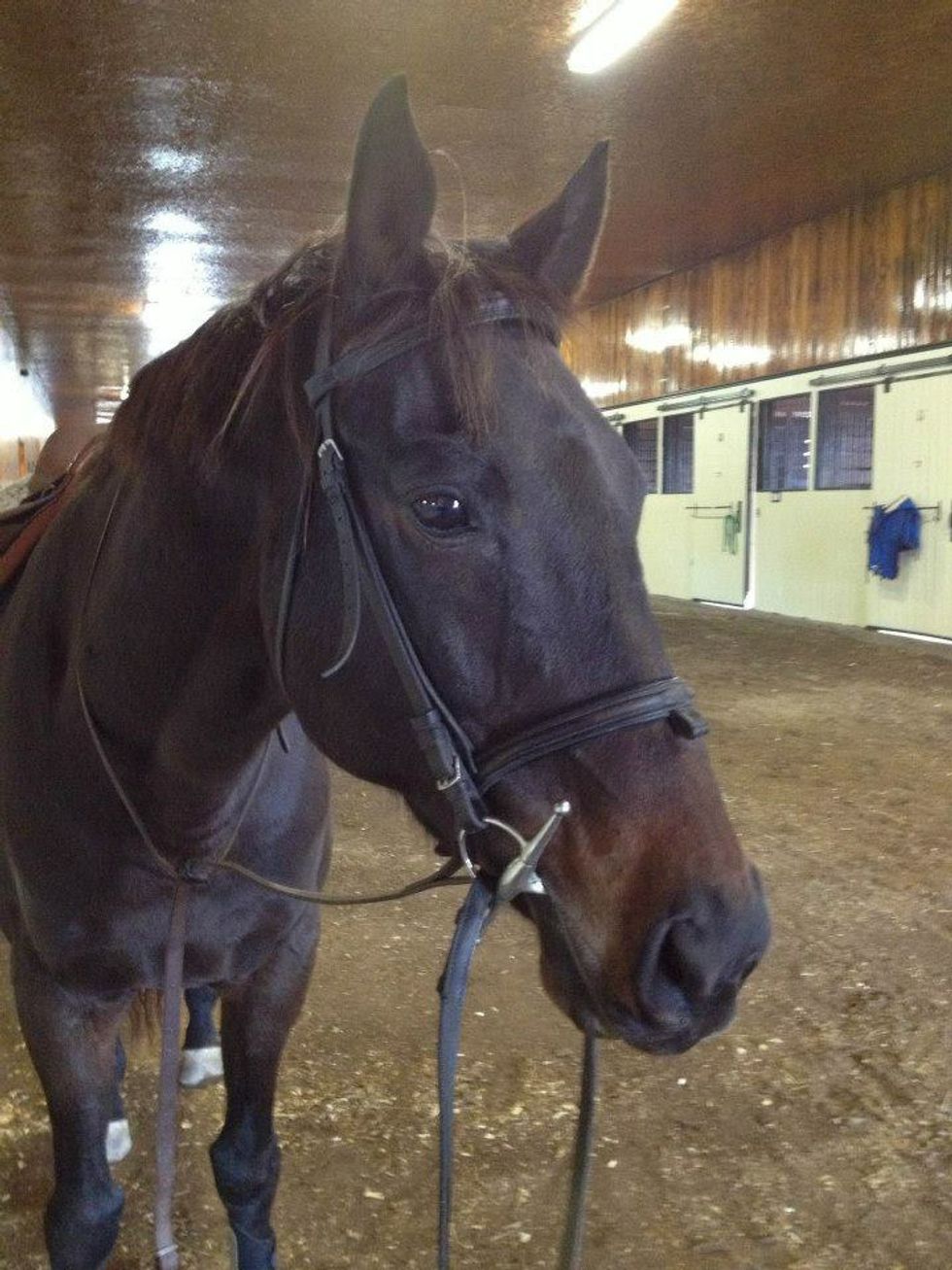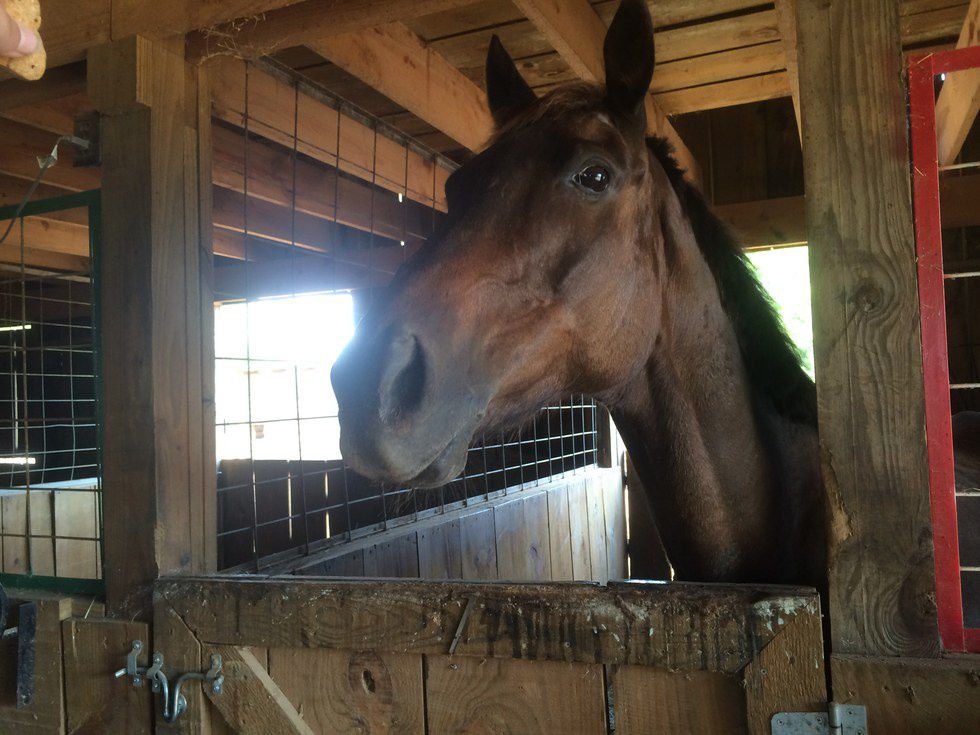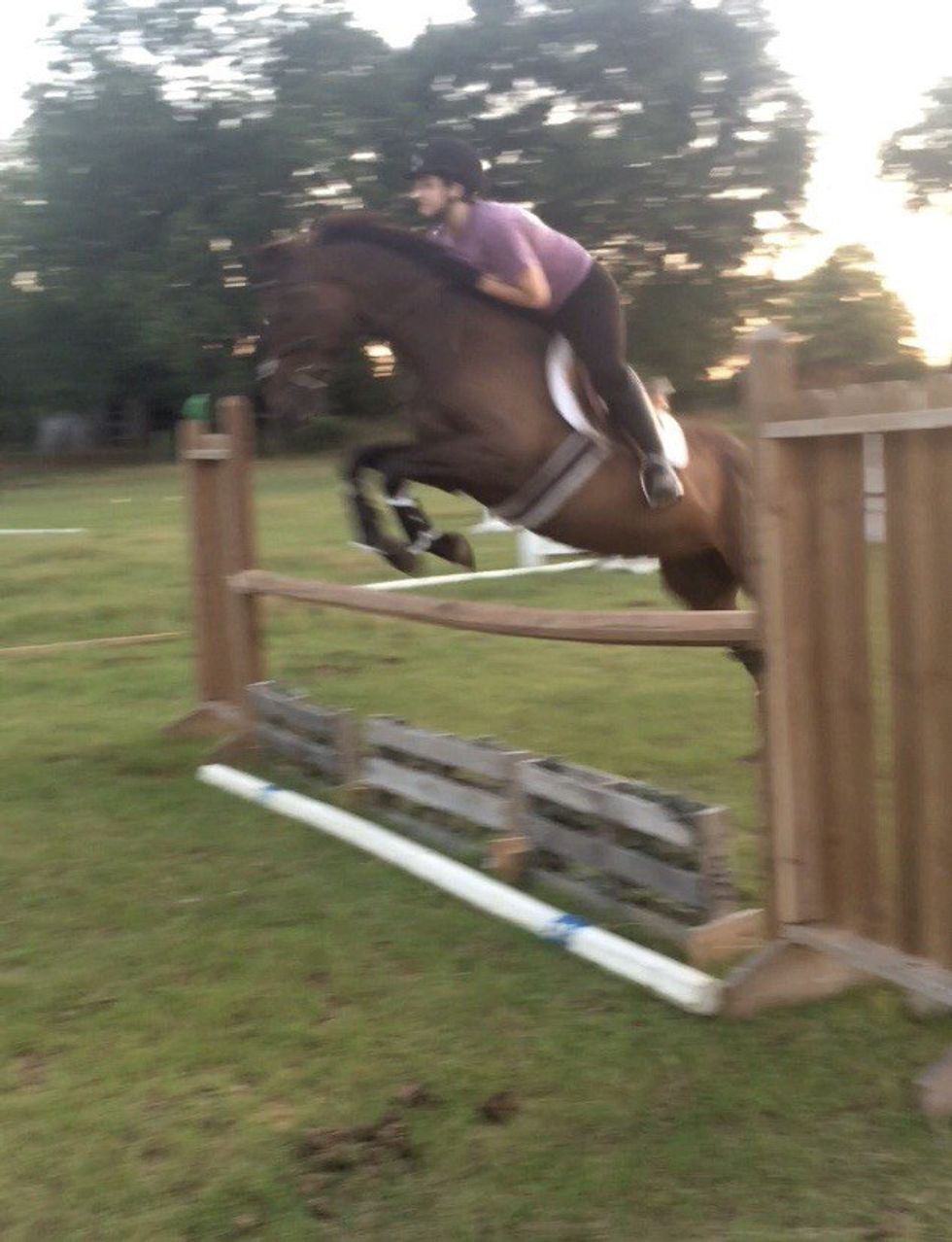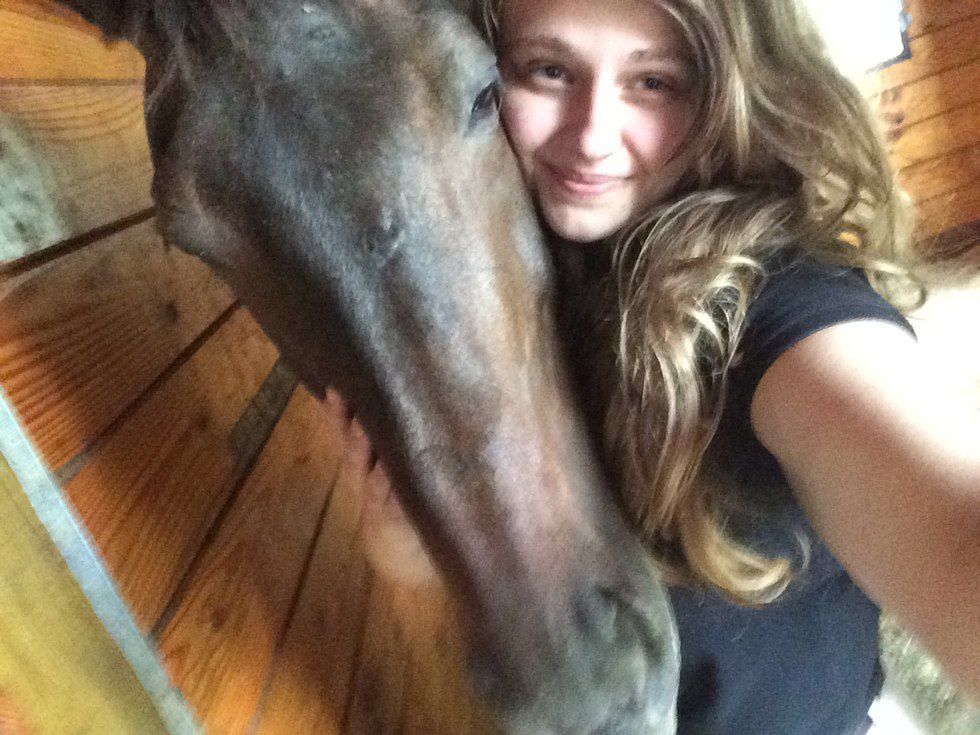In the summer of 2012, I met my best friend at the barn I worked at; a 10 year old off the track thoroughbred named AJ. Two years later I was lucky enough to have him as my own horse. After years of experience with this incredible breed, I wanted to shed some light on what it's truly like to own and ride an OTTB.
1) There will be good days.
He'll finally understand the concept of a flying lead change, that 18" inch cross-rail won't feel like a 4' oxer; it's little moments and rides like these when you'll be overwhelmingly thrilled with your horse's progress.
2) But there will also be absolutely awful days.
Sometimes, you won't even be able to get him out from the pasture or he'll try to drag you around on a lunge line like a rag doll (hoorah for rope burn.) Take a step back and realize that you have your bad days too; horses can sense that better than you think.
3) Sometimes you'll get so frustrated, you'll want to quit.
Don't. You can always push through rough patches. If I had not done that with AJ, we wouldn't have accomplished nearly as much as we have now.
4) Depending on the day, they might revert back to their old racehorse selves.
Remember all they were told to do was run for most of their lives - and run fast. I once rode an OTTB who, whenever you were off your guard and were riding in an open field or on a long stretch of grass, would get antsy and try to take off running with or without you. For a long while they won't understand what you mean when you ask them to slow down and collect. But when they do, it feels as if you're on a cloud.
5) They pick up bad habits and quirks from the racetrack you'll have to work them out of.
Cribbing, poor ground manners, not wanting their faces touched, walking off when you're trying to mount; these are all common bad habits seen in horses off the track as they're transitioning from a rushed, stressful schedule to a more calm and focused one. All I can say is groundwork, groundwork, groundwork. Whether it's lunging or just spending some time grooming or bathing your horse, this is time for the two of you to bond. My horse, for example, has a weird issue with people touching his ears. This was so stressful when I first got him because I could barely put a halter or bridle on him. With some time, he started to trust me more and became more relaxed.
6) They require countless hours of teaching and reteaching.
After having been one of a Thoroughbred's first rides since being off the track, I can say with absolute certainty these horses need constant work and attention. With my busy schedule between school, work, and club meetings, it can be difficult for me to constantly be at the barn. Sometimes my first ride back in work with him after a week or two off is an absolute nightmare. This past summer, however, I was able to be at the barn almost every day and we both improved immensely. The bottom line is; you get out of your riding what you put in.
7) Give it time.
Let's say there's a set of dressage moves you just can't get right, your transitions just aren't what you want them to be, or no matter how hard you try, your horse refuses to jump a certain fence. You've tried over and over, they don't understand what you're asking, you're angry, and nothing good can come from being pissed off while you're in the saddle. OTTBs are very hyperactive as they're used to a fast paced setting and can get frazzled easily. Push the reset button; let them walk it off a bit before you ask them to do something again. And if you don't accomplish something immediately, find a new approach toward the problem. For example, AJ can get very forward between jumps in a line. Instead of excessively half halting and hoping that will solve the issue, I've started doing grid-work with him. I'll set up a gymnastics series of bounces to get him to use his hind end more so he isn't so reliant on being forward.
8) You must be open minded.
Every horse is different and every horse is suited for a different discipline or way of life. If you're a Hunter/Jumper and your OTTB isn't really into the whole going slow and looking pretty thing, there's no harm in trying a different discipline. I can speak from experience that owning my OTTB really pushed me to try Eventing. It was an absolute blast and, quite frankly, caused me to learn and improve so much as an equestrian. In Eventing, not only do you have to be calm and collected during the Dressage phase, you also have to be able to handle obstacles and questions being thrown your way in the Cross Country phase. Plus, you're opened up to a new world of people, in which I've made so many friends who do what they love because they love their horses.
9) You have to learn to speak their language.
This completely goes along with staying open minded. Many OTTBs are hot tempered and, of course, all horses have a mind of their own. You may have learned how to ask for a bend or a canter transition, but Thoroughbreds are extremely sensitive to you hand, leg, and especially your seat. They listen and respond because they are so loyal and willing to please. But if you're wanting to make progress, you have to learn how to talk to them.
10) It's all worth it in the end.
Through the ups and downs, every day I've been able to make progress with my horse. Whether one day it's not taking off when asking for the canter, another when we jump a 3'6" course beautifully, or when we finally get over the big, scary ditch jump on the far end of the field. There are countless times when I will go to the barn to just so I can spend time with my best friend. These horses toughen you up, challenge you, and make you strive to be a better rider as well as a better, more compassionate human being.
Sleepy pony selfies!
If you're looking for a new best friend, project, partner in crime, etc. I strongly suggest you take the time to look at an off the track thoroughbred. They are so athletic and smart and there are so many amazing horses that come off the track deserving of a loving owner who will give them a chance at a new life. I have been working with these horses for several years and I have never met another breed as clever, with such personality, or as big of a heart as an OTTB.

























